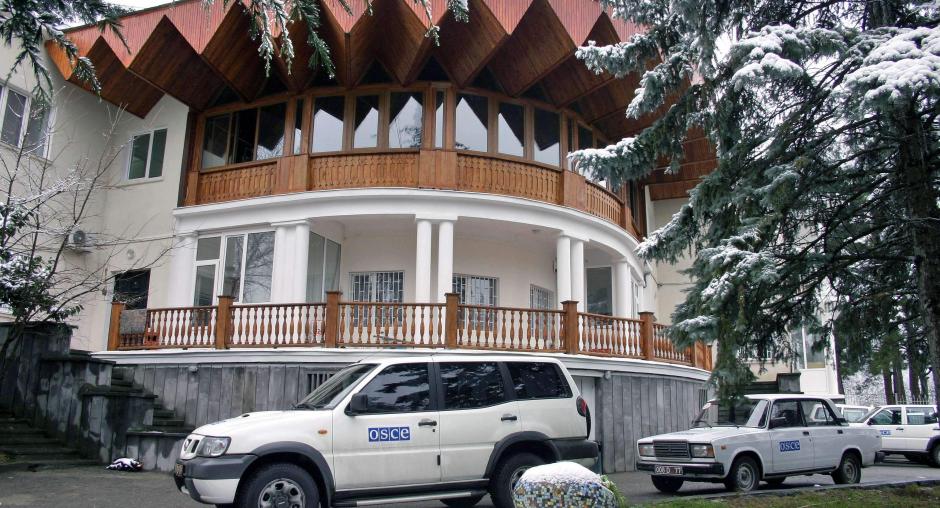Overview

The main tasks of the OSCE Mission to Georgia, which were gradually increased since its opening in late 1992, have been the following:
Politico-military dimension of security
Conflict resolution
The Mission promoted negotiations between the conflicting parties in the zone of the Georgian-Ossetian conflict (1992), and supported the UN-led peace process in the zone of the Georgian-Abkhaz conflict (1993). It was a participant in the Joint Control Commission co-chaired by the Georgian, Russian Federation, North Ossetian and South Ossetian sides and monitored the Joint Peacekeeping Forces (JPKF) in the zone of the Georgian-Ossetian conflict.
The Mission led an initiative funded by international donors for economic and infrastructure rehabilitation projects in the zone of conflict. Other grass-roots projects helped to bring communities together and build the capacity of the NGO sector.
After hostilities broke out in South Ossetia in August 2008, the Mission refocused its work toward urgent stabilization and easing of the humanitarian crisis, rapidly assimilating 20 new monitoring officers. It supports the Geneva discussions co-chaired by the EU, the UN and the OSCE to bring stability to the region and the joint incident prevention mechanisms agreed at the discussions.
In relation to the Georgian-Abkhaz conflict, the Mission was tasked to support the UN-led efforts, and seconded a human rights officer to the UN Human Rights Office Abkhazia, Georgia (HROAG).
Destruction of surplus stockpiles
The Mission, through OSCE donor States, funded a programme for the dismantling of stockpiles of obsolete ammunition, and also for the neutralizing of dangerous chemicals left on former Russian bases in Georgia.
Assisting police reform and enhancing anti-terrorism capacities
The Mission supported the Georgian law enforcement structures in combating terrorism and organized crime. Assistance for police reform was rendered in areas such as human resource management, community policing and the Police Academy.
Strengthening border management capacities and security
The Mission was engaged in promoting inter-agency co-ordination and international co-operation on border issues. The Mission undertook projects addressing the short- and medium-term needs of the Georgian Border Police, through specialized skills and management training programmes for junior officers and senior management. Previously, the Mission ran a border monitoring operation on 280 kilometres between Georgia and the Russian Federation.
Human dimension of security
The Mission assisted the Georgian Government in fulfilling its OSCE commitments on human rights, rule of law and democratization. The Mission monitored and supported the protection of human rights and fundamental freedoms in Georgia, including in South Ossetia and Abkhazia, and promoted the building of civil society and democratic institutions.
Economic and environmental dimension of security
The Mission regularly monitored, analysed and reported on developments in the economic, energy and environmental sectors. Specific activities focused on supporting small- and medium-size enterprise development, assisting the Georgian Government in its efforts to improve economic and environmental related legislation and facilitating OSCE regional economic and environmental activities.
Co-operation with other international organizations
The Mission co-operated closely with a range of international organizations and institutions on a number of issues relevant to the Mission mandate. Three relationships stand out - those with the United Nations, the European Commission and the Council of Europe.
The Mission to Georgia has been in a process of discontinuation since the expiry of its mandate at the end of 2008.
Further information on mandates, staffing levels and budgets, including closed Field Operations, can be found in the annual Survey of OSCE Field Operations.
